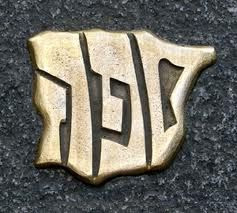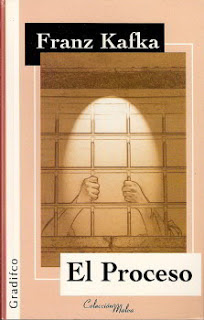Divrei Emmanuel Parashat Vaigash
Síntesis Parashat Vaigash:
Yaakov y
toda su familia se mudan a Goshem. Dios se comunica con Yaacov a través de una
visión nocturna, le dice que no tema a las consecuencias de vivir en Egipto ni
su influencia espiritual negativa, porque allí va a ser allí donde Dios le va convertir
una gran Nación, a pesar de estar
viviendo en medio de un pueblo corrupto
e inmoral. Los descendientes de Yaacov-Ysrael se multiplican enormemente.
"Entonces se echó sobre el cuello de su hermano Benjamín, y lloró; y Benjamín también lloró sobre su cuello."
Esta parashá tan
emocionante relata la historia de la reunificación de los hermanos con Yosef en
Egipto. Finalmente él les revela que es Yosef su hermano al que ellos vendieron
como esclavo. Cada parte de esta historia está llena de gran emoción mientras
él llora y se reconecta con cada parte de su familia. Pero el clímax de todo
esto ocurre en el cuello de su hermano Benjamín cuando ellos se abrazan después
de tantos años de separación y ambos lloraron.
El Midrash
comenta que Yosef y Benjamín no estaban llorando solamente por la gran alegría
de su reunión sino también, porque ambos eran profetas y vieron el futuro tan
difícil del pueblo judío. Yosef vio a través de la profecía que los dos templos
de Jerusalén serían construidos en la porción del territorio de la tribu de
Benjamín y serían destruidos, y Benjamín vio que el tabernáculo de Shilo sería
establecido en la porción terrenal de la tribu de Yosef y que éste también
sería destruido para crear los templos de Jerusalén. En este momento de gran
alegría personal – ellos lloraron por el futuro tan triste que vieron
proféticamente. Tal vez por esa misma razón acostumbramos hoy en día a romper
un vidrio debajo de la jupa en una boda mientras decimos "Im eshkajej yerushalayim tishkaj yemini" -Si te olvido
Jerusalén que mi diestra pierda su fuerza.
¿Pero, por qué
nuestros patriarcas encontraron apropiado llorar por el templo durante un
momento tan lleno de amor filial y tan alegre?
Chazal – Nuestros
Sabios de Sagrada memoria, explican que la destrucción de los dos templos
ocurrió por la averá (el pecado) de Sinat Jinam -odio al prójimo. Pero en
hebreo tiene mucho más significado por que se traduce literalmente como
"odio al hermano." Es odio, rencor, celos sin razón, sin ninguna
justificación. Este odio ha causado desunión entre el pueblo judío y es la
razón por nuestro exilio, la destrucción del templo y todos los sufrimientos a
través de la historia judía. Ellos sabían que fue – sinat jinam lo que causó la
venta de José y su sufrimiento en Egipto. Este mismo problema causaría la
destrucción del Templo en el futuro y ellos vieron que aunque en este momento
los hermanos estaban unidos vendrían momentos en la historia que el sinat jinam
causaría su destrucción.
Pero queda la
pregunta – ¿por qué Benjamín lloró? -La destrucción del tabernáculo de Shilo no
fue un evento triste, fue alegre porque estas partes se usaron para construir
el Templo permanente. Este fue un momento histórico alegre.
Es aquí que la
lección sobre sinat jinam se intensifica al explicar la solución de este
problema. El amor para el prójimo es la resolución de sinat jinam. Benjamín
sabía que el tabernáculo sería destruido para crear el Templo y que este era un
momento de progreso para Israel. También entendió que este progreso ocurriría
en la porción de él mientras que la porción de su hermano perdería lo que ya
tenía.
El amor al
prójimo requiere que busquemos el progreso de nuestros hermanos mientras
nosotros también progresamos. Benjamín llora porque su progreso fue conectado a
la pérdida de su hermano.
El llanto de
Yosef es por la causa de la destrucción sinat jinam. El llanto de Benjamín es
para demostrar la resolución de esta averá.
Tal vez esta es
la razón que la Parashá se lee cerca del ayuno del 10 de Tevet – porque fue en
este mismo día que las paredes de Jerusalén fueron destruidas por Nebujadnezar
y la destrucción del primer Templo.
Buscaremos la
prosperidad y la paz de nuestros hermanos mientras aseguramos la nuestra y que
esa unidad traiga el Mashiaj esperado para unir a toda la humanidad como
hermanos. AMEN
Por
el Rabino Rigoberto Emmanuel Viñas
“Sinat
Chinam - Disunity caused our destruction”
“And he fell upon his
brother Benjamin’s neck and wept; and
Benjamin wept upon his
neck.” (Genesis 45:14)
This
highly emotional parsha relates the story of the reunification of the brothers
with Joseph in Egypt. He finally reveals to them after many travails that he is
Joseph whom they had sold as a slave. Each part of this wonderful story is
filled with emotion as he reunites with each brother but the emotional climax
occurs on the neck of his brother Benjamin when both brothers embrace after
many years of separation and cry upon each other.
The
Midrash comments that Joseph and Benjamin were not only crying the tears of joy
at this powerful moment but were also crying bitter tears for the future.
Joseph saw through prophecy that the two temples of Jerusalem would be built in
the portion of Benjamin in the Land of Israel and that they would be destroyed
in the future and Benjamin saw that the Tabernacle (Mishkan) of Shilo would be
built in Joseph’s portion and would also be destroyed to build the Temples of
Jerusalem. At this moment of great joy – they cried for the bitter future that
they saw through prophecy. Perhaps this is one of the reasons why at a wedding
– a moment of great joy – we pause to remember the destructions of our holy
temples by stomping on a glass and saying “Im eskachech Yerushalayim tishkach
yemini - If I forget thee oh Jerusalem let my right hand lose its strength…”
But
why would our patriarchs find it significant to detract from this moment of
brotherly love and reunification to mourn the destruction of the temples?
Our
Sages of Blessed memory explain that the destruction of the temples of
Jerusalem happened because of the sin of Sinat Chinam. Sinat Chinam is
jealousy, envy and senseless hatred of our brothers. Sinat Chinam caused
disunity among us and continues until today. Joseph knew that the Sinat Chinam
that had caused his condition of servitude in Egypt would one day cause the
destruction of both temples of Jerusalem. He knew that even though there was at
that moment a great unification of the brothers that one day they would be
disunited by hatred/envy again and that this would lead to the destruction of
Zion and Jerusalem. He was deeply saddened that this moment of unity would not
last forever. He was deeply saddened that the destructions would occur in the
portion of the land of Israel allotted to his brother Benjamin and cried for
his loss.
But
why did Benjamin cry? The dismantling of the mishkan Tabernacle at Shilo
located in the portion of Joseph was not a sad event. This tabernacle was taken
down in order to build the Temple of Jerusalem. All of its parts were moved to
Jerusalem and a great celebration was held. Why did Benjamin cry for this loss (apparently)
this is not a cause for sadness rather it should be a cause for celebration?
It
is here that a deeper lesson emerges about brotherly love. Benjamin knew that
the Tabernacle at Shilo would be taken down to accommodate the Temples of
Jerusalem and that this was progress but his sadness was that the progress
which would take place in his portion was at the expense or loss for his
brother’s portion. His gain was at Joseph’s loss!
Brotherly
love requires that we seek the progress of our brothers along with our own. It
requires that we mourn any loss of theirs as much as our own loss and that we
not seek to progress at the loss of our brothers.
Joseph’s
tears teach us the cause of the destruction of our temples – Sinat Chinam –
hatred/envy/disunity of our brothers. Benjamin’s tears teach us how to remedy
that situation. We are to mourn each other’s losses and to seek each other’s
prosperity and not seek our own prosperity at the loss of others.
Perhaps
this is why this parsha is read so close to the date of the Tenth of Tevet. On
this date the Army of Nebuchadnezzar surrounded the City of Jerusalem and this
siege led to the destruction of our first Holy Temple.
May
we seek the peace and prosperity of our brothers. May our unity bring Mashiach
which will unite all of mankind. AMEN






